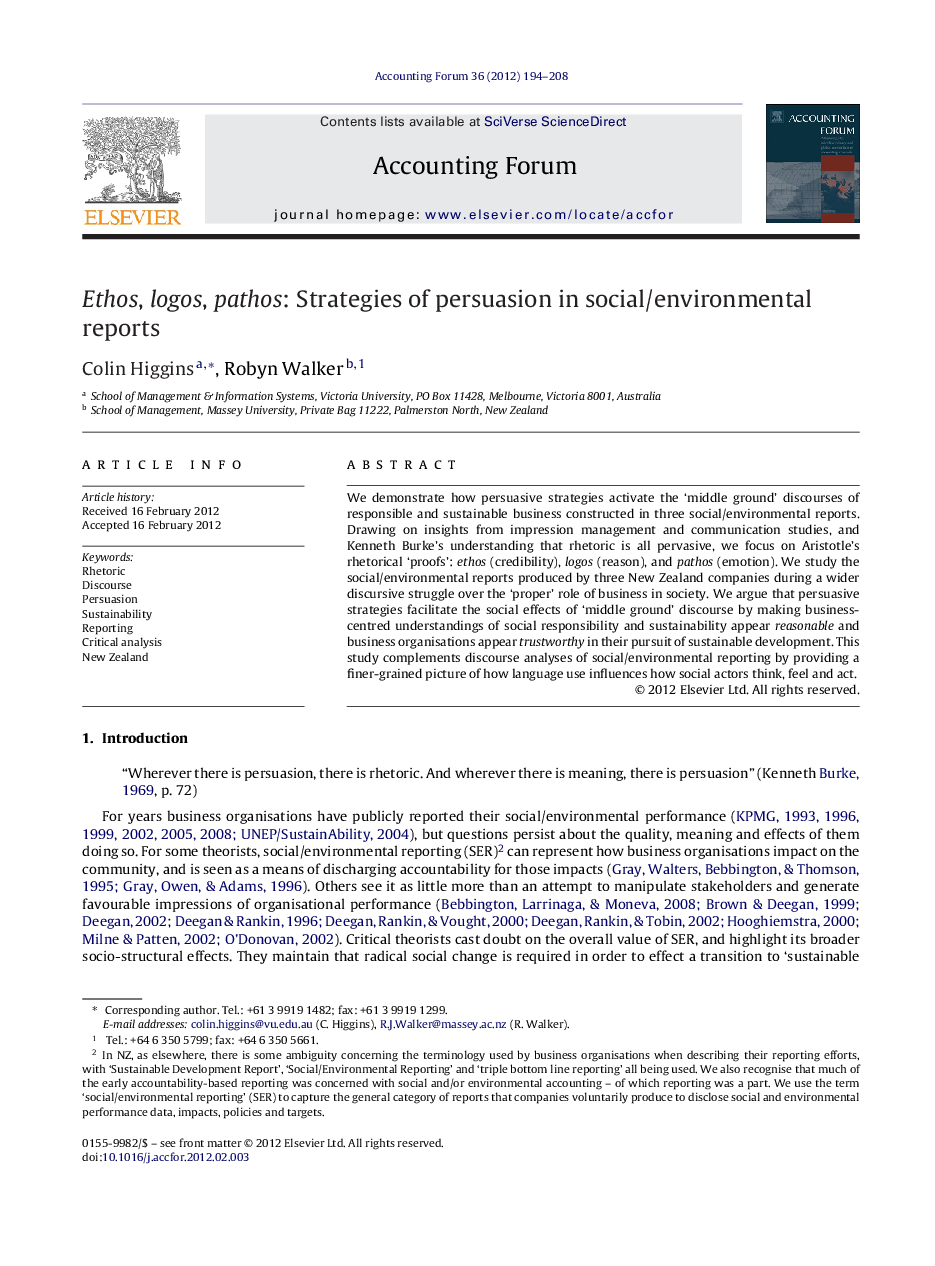| Article ID | Journal | Published Year | Pages | File Type |
|---|---|---|---|---|
| 1003830 | Accounting Forum | 2012 | 15 Pages |
We demonstrate how persuasive strategies activate the ‘middle ground’ discourses of responsible and sustainable business constructed in three social/environmental reports. Drawing on insights from impression management and communication studies, and Kenneth Burke's understanding that rhetoric is all pervasive, we focus on Aristotle's rhetorical ‘proofs’: ethos (credibility), logos (reason), and pathos (emotion). We study the social/environmental reports produced by three New Zealand companies during a wider discursive struggle over the ‘proper’ role of business in society. We argue that persuasive strategies facilitate the social effects of ‘middle ground’ discourse by making business-centred understandings of social responsibility and sustainability appear reasonable and business organisations appear trustworthy in their pursuit of sustainable development. This study complements discourse analyses of social/environmental reporting by providing a finer-grained picture of how language use influences how social actors think, feel and act.
► Identifies persuasive language used in early social/environmental reports. ► Logic, firm credibility, and emotion are used to describe social responsibility. ► Persuasive language helps to ‘activate’ the social effects of discourses. ► Business-friendly discourses spread because of language strategies.
